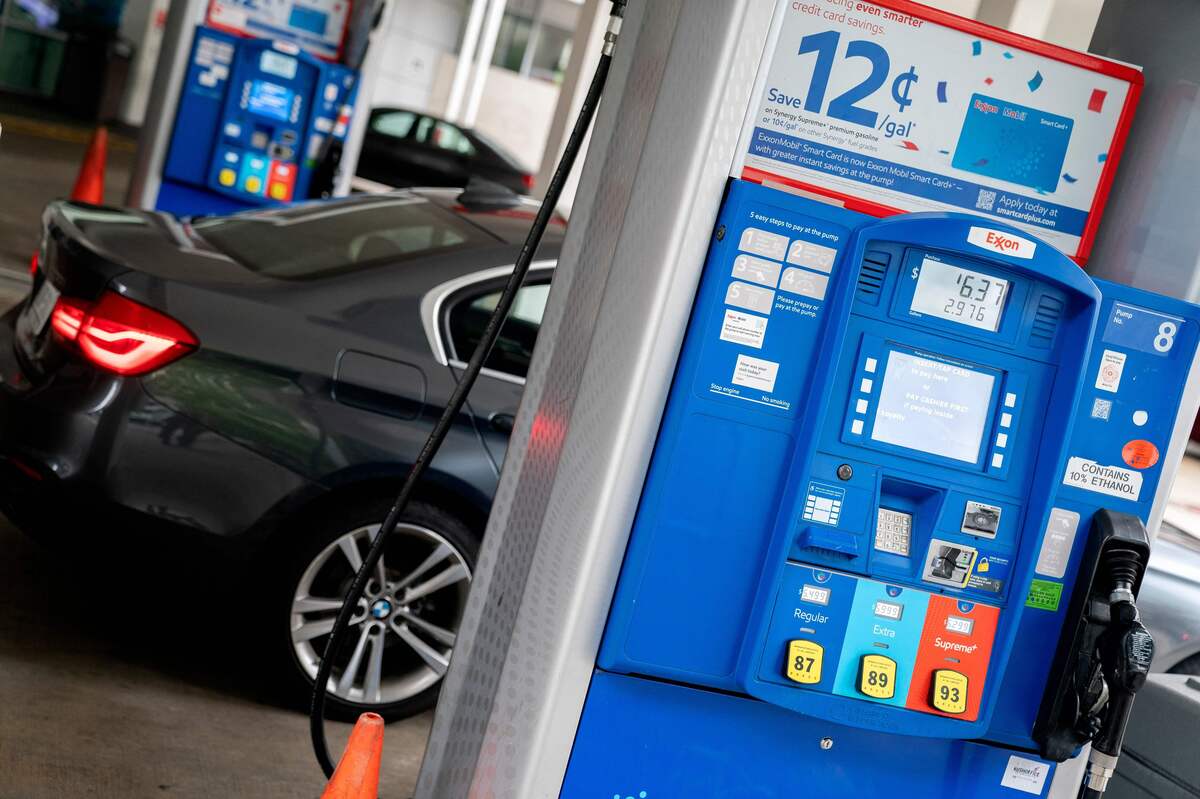Prices are displayed on a gas pump outside of a gas station in Washington, D.C., on June 14, 2022.
Stefani Reynolds/AFP via Getty Images
hide caption
toggle caption
Stefani Reynolds/AFP via Getty Images


Prices are displayed on a gas pump outside of a gas station in Washington, D.C., on June 14, 2022.
Stefani Reynolds/AFP via Getty Images
Saudi Arabia announced Sunday that it would begin cutting oil production by 1 million barrels per day in July to support the “stability and balance of oil markets.”
Though the country says it doesn’t use the cost of crude to make oil production decisions, the move is considered to be an attempt to prop up oil prices in response to global economic uncertainty and concerns that international demand could drop.
The decision came out of an OPEC+ meeting in Vienna, but the extra cuts announced by Saudi Arabia are being done unilaterally.
Saudi Arabia says the cuts will last at least a month and could be extended.
OPEC+ countries also agreed to extend oil production cuts they announced in April through the end of 2024, reducing the amount of crude they pump into the world market by more than 1 million barrels per day. OPEC+ countries produce about 40% of the world’s crude oil.
There had been pressure on many African nations and Russia to cut production. Meanwhile the United Arab Emirates will increase its crude output.
Global oil production ranges around 100 million barrels a day.
Saudi Arabia will now produce 9 million barrels of crude oil per day, the country’s Ministry of Energy said. That’s 1.5 million fewer barrels per day than it was churning out earlier this year.
The cuts come shortly after Memorial Day in the U.S. and on the cusp of the busy summer travel season. Crude oil prices are closely associated with the cost of gasoline.
Last summer President Biden traveled to Saudi Arabia — which he had previously called a “pariah” state — to ask the country’s leaders to increase oil production.
Instead, OPEC+ members in October announced a cut of 2 million barrels per day, a decision the White House called “shortsighted.”
The Biden administration has been releasing millions of barrels of oil from the Strategic Petroleum Reserve since last year in an effort to keep gas prices down.
This story originally appeared on NPR



